Alec Lobrano: The American Food Writer Whose Palate Became French
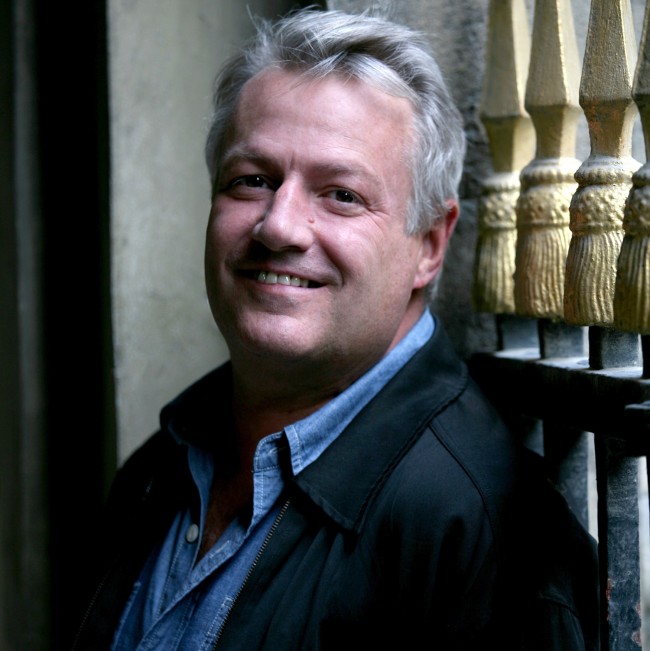
Alec Lobrano talks to Patrice Bertrand about his favourite chefs, his love of cooking and why French cuisine is the best in the world… and that’s just for starters.
“When I tell people that I’ve lived in France for over 30 years, many ask if I consider myself French,” says Alexander Lobrano, France Today’s food writer, who, because of Covid and the lockdown in Paris, has temporarily retreated with his French spouse to the Gard département. There, they live in a small village between Nîmes and Uzès where they have restored a set of 17th-century stone houses.
“The answer is no,” he continues. “My education and imagination have been nourished by the English language and the American values of egalitarianism, politeness, scepticism of official authority, and modesty. But a vital part of me has actually become French – my palate. I find magnificent the subtlety of a sauce like, for instance, a Hollandaise or a Béarnaise. I think this subtlety is very French. It’s given me a much more sensitive and subtle palate than I had when I arrived in France years ago.”
Alec, as he’s known, describes this slow metamorphosis of his palate and taste buds in his latest book, My Place at the Table. A gripping memoir full of insights into French culinary culture, it tells how a timid teenage boy from the Connecticut suburbs, who discovered his passion for restaurants during his first trip to Europe in 1972, became one of the most influential dining critics and food writers in France.
“Now that the book is about to go into the world, I’m starting to say to myself, ‘Oh, dear, what have I done?’,” says Alec. “It’s very personal and very tender. On the other hand, when you hide something, it creates shame. When you talk about something, it blunts its power when it’s put out into broad daylight.” What Alec has put out into broad daylight is a detailed and intimate portrait of himself and a poignant account of his complicated ascent: his arrival in Paris in 1986 to work for an American fashion magazine, his first food article (about a famous cheesemonger), his daily struggles as a stringer, his experiences with French culinary culture and the French, his discovery of Paris and its restaurants, his love affairs, his failures, his successes, his ten years as the European correspondent for the iconic, now defunct Gourmet magazine…
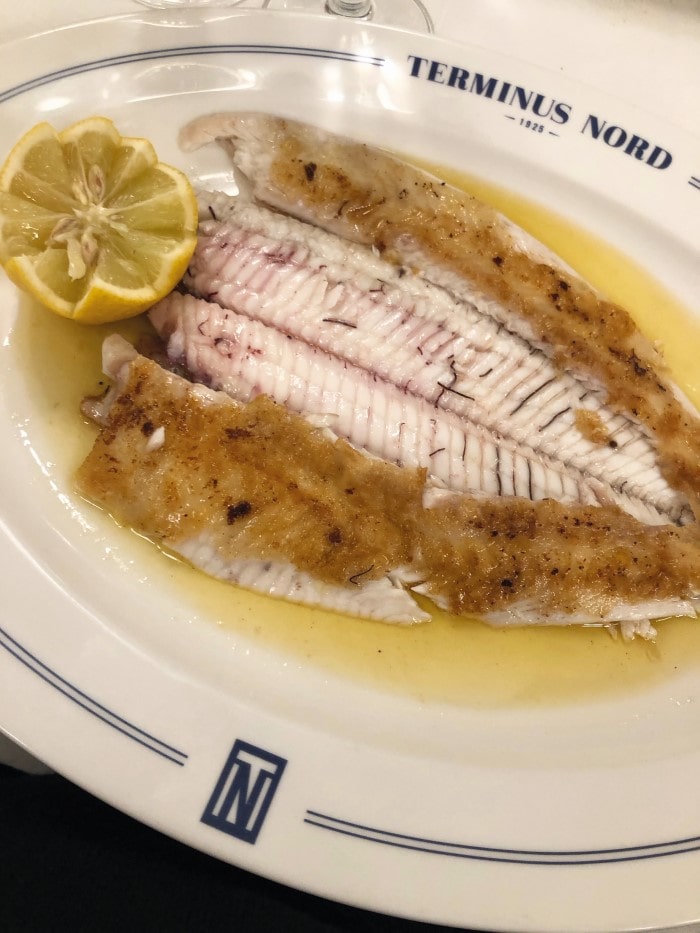
A perfect sole meunière at Terminus Nord in Paris © Alexander Lobrano
EACH RESTAURANT IS A THEATRE
My Place at the Table concludes with his work for the French financial daily Les Echos, for which, until the late 1990s, he wrote articles in French. At this point, Alec has ceased to be the simple ‘American in Paris’ he was when he arrived. He has made it: he is recognised by the French themselves, they know he understands their cuisine and their culinary culture from the inside out and is capable of judging it. Incidentally, this is also the feeling that any French person who reads his book will probably have.
Asked about himself and his profession (he carefully says ‘food writer’ rather than ‘restaurant critic’), the warm and gregarious Alexander Lobrano, a sturdy 60-year-old, expresses himself passionately. “I love restaurants,” he says, “for the food, of course; but I love the conviviality, and I like the drama… I think that restaurants are like novel theatres where you have a performance. A meal in a restaurant is like a play. Some performances are better than others.”
Alec emphasises that this love of conviviality comes from his childhood, spent in Westport, Connecticut, a chic, conservative suburb of New York City, where his father was a textile industry executive. “I grew up in a family where the table was very important,” says Alec, who hasn’t set a foot in his native country for two years because of the pandemic. “Not just for the food but because we sat, we waited, we all had dinner together every night at the table and I couldn’t leave if I didn’t have a good excuse. At the table, my mother was like a sort of orchestra conductor: she felt this is where you learn conversation. I have two brothers and sisters. We all had a turn. She asked questions about something and we talked about it. You learn conversation. Conversation is an art like cooking is an art.”
According to INSEE, the French national statistics bureau, France has 175,000 restaurants, including 18,000 in Paris and its surroundings, a vast field of investigation for the roughly 100 prominent food critics who operate in France. When in the French capital, Alec confesses that he dines out four or five times a week – but not at all times: preferably the evening and never at weekends because places are too crowded.
“I think the best day to go out in France is Thursday. Chefs have already made all the bouillons, the kitchen is well-stocked, everything is working well, they have everything they need to cook well and they are cooking for a local clientele, whether in Avignon, Paris, Strasbourg,” says Alec, whose previous book, Hungry for Paris, reviews the capital’s 109 best restaurants.
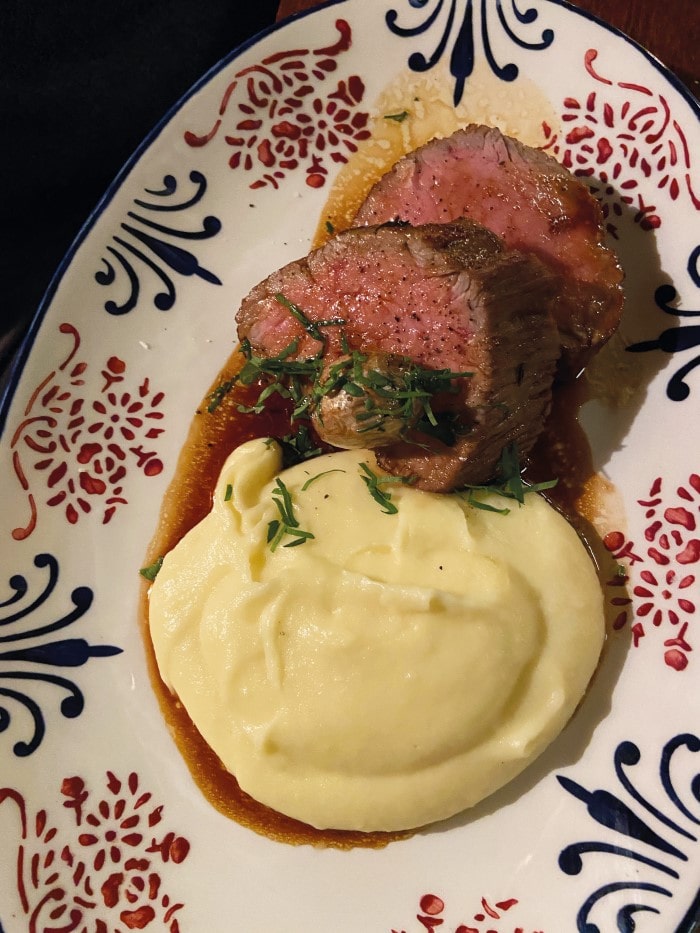
Roast beef and potato puree at A L’Epi d’Or, a favourite Paris bistro © Alexander Lobrano
THE INVISIBLE MAN
Like many of his colleagues, Alec prefers to go to restaurants incognito, often with friends. For him, this is the best way to form the most accurate opinion of the establishments and dishes that he will later feature in his articles.
“I like to be invisible. I always want the people who read what I’m writing to have a wonderful meal and a happy experience. The only way for me to make this happen is to be completely anonymous so that I can be completely objective and have the same experience anybody else can have.”
This invisibility also allows him to assess another dimension of restaurants: the hospitality of its staff. “The food, of course, is important, but the hospitality is too because if you feel that people care and are happy that you’re there, you relax and when you relax, you start to enjoy yourself. I think that good hospitality usually is the sign of a well-run restaurant,” says Alec.
This method has paid off and given him some favourite restaurants where he goes regularly. In Paris one is Septime, in the 11th arrondissement. “It’s hard to get a reservation,” he says. “But every time I go back, I must say, Bertrand Grébaut, the chef, just keeps growing. His imagination is so exquisite and his food is like edible poetry. It’s just beautiful food. It’s so elegant, so exciting. I like to follow young chefs like that.”
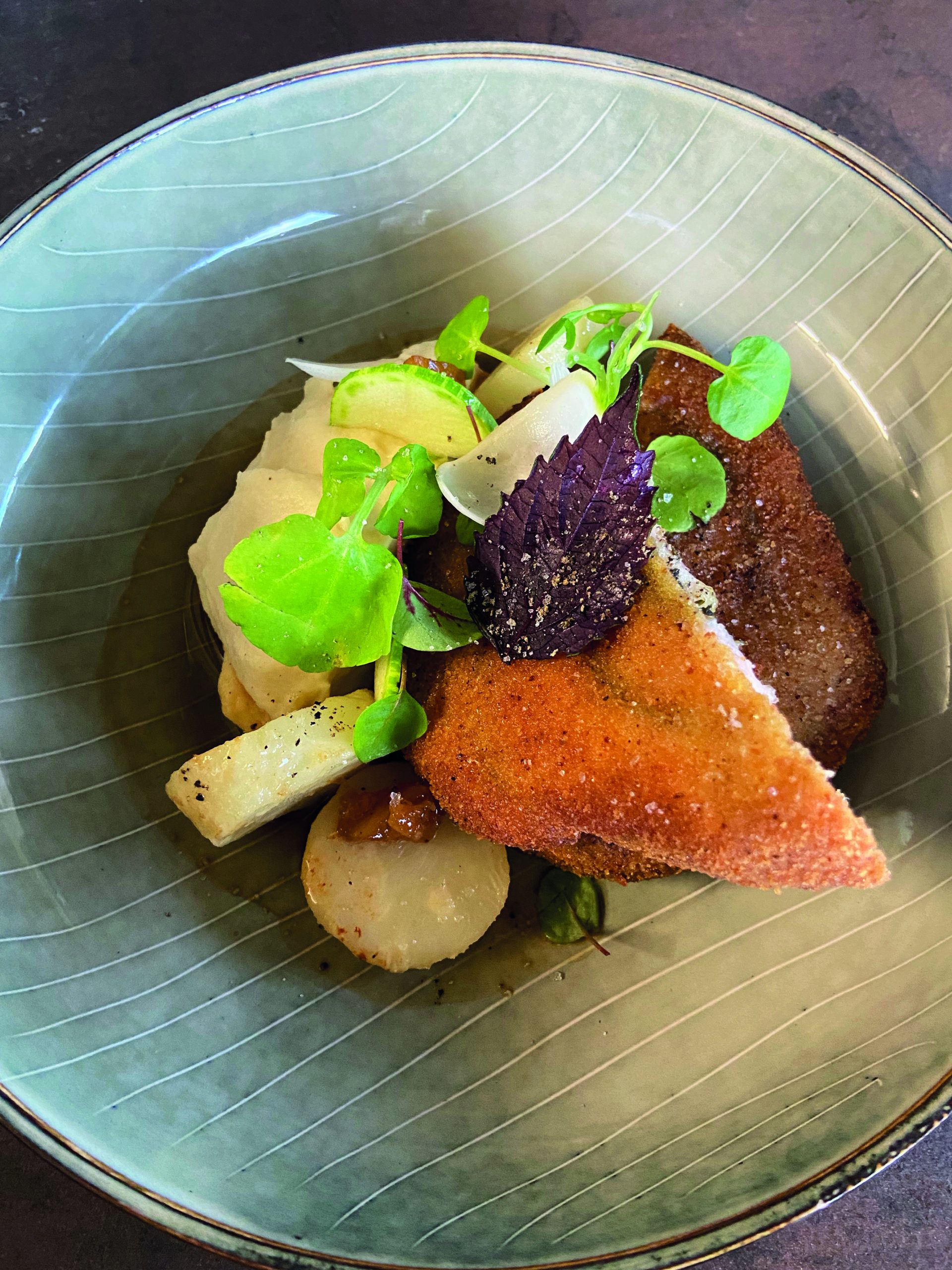
Deep fried pork belly with salsify at Volver in Le Gard @Alexander Lobrano
If Alec likes to follow these young chefs, it is precisely because he is excited by the current creative energy in France. He doesn’t share the widespread idea that French cuisine is overrated or declining. “If we are talking about the Western world, I’d say that France is the best country gastronomically,” says Alec, who has amassed his experience in a countless number of restaurants, from the humblest bistros to the greatest tables. “The codes and techniques of cooking were codified and created in French kitchens and French culinary education is the best in the world. So, between the world’s best products, fabulous wines, amazing culinary education and a general public who care passionately about food and who actually know about it, the level of gastronomic literacy in France is unique in Western countries.”
He makes a good point about those “fabulous wines”. Indeed, French cuisine is inseparable from its wines and, on this subject, it’s difficult not to think of Curnonsky, perhaps the most famous of French food writers, who, more than 80 years ago, put them side by side in his huge compilation of French recipes, Cuisine et vins de France.
“My wine education completely occurred in France,” says Alec. “I can’t imagine having a meal without wine and it doesn’t have to be an expensive one. What’s wonderful about being in the South of France is to be able to buy some beautiful wines and they cost €5 a bottle. The wine flatters the food, the food flatters the wine. Wine pairing is a great art, so a good sommelier can add so much to a meal. I find it interesting that more and more women are working as sommeliers. They do the job differently and are more eager to share what they know.”
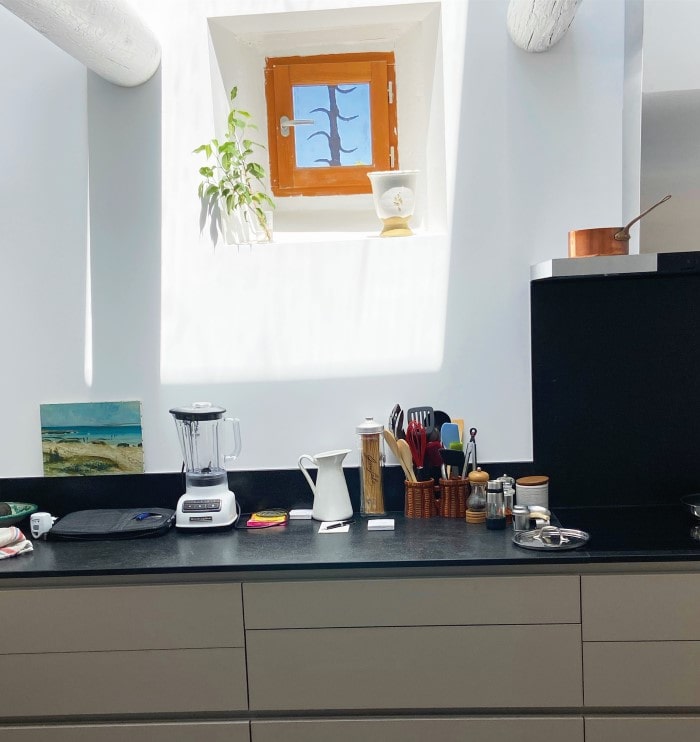
Alec’s new kitchen at home in Le Gard © Alexander Lobrano
AT HOME IN THE KITCHEN
Unlike Curnonsky, who had neither a kitchen nor a dining room in his apartment, Alec is a passionate cook. “During the first lockdown, I was in Paris and everything stopped,” he remembers.
“It was quite shocking and strange not to be going to restaurants. So, I had to cook a lot. I love to cook because it changes my relationship with food. Instead of being the one sitting at a table, I am the one standing in the kitchen and it gives you respect for chefs and how hard that work is.
“Now that we have migrated south to our house in the Gard département, we don’t go out that often, though there are some wonderful restaurants there. Instead, we cook and cook. I find myself in a constant search for new tastes, recipes and inspiration in the kitchen,” says Alec, who the same morning we spoke had gone to the Uzès market.
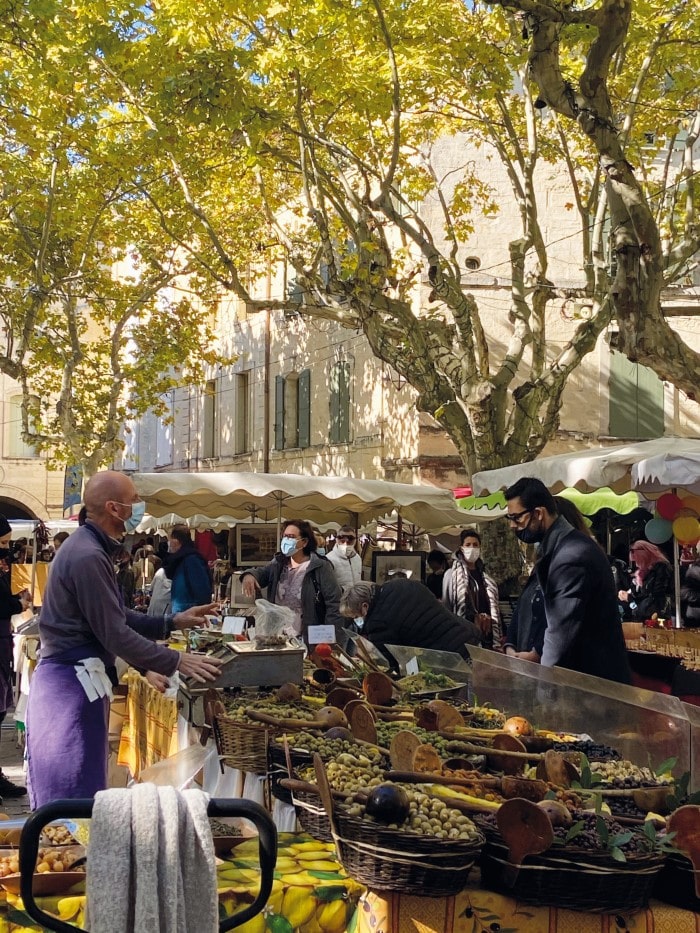
Market in Uzes @ Alexander Lobrano
“It has a wonderful, wonderful market,” he says. “I bought whatever looked beautiful – chicken, asparagus, aïl nouveau (young garlic). But I don’t really know what I’ll cook tonight. In the country, it’s the products which tell you what to cook so I don’t open cookbooks. I buy the best looking food and I say, okay, I’ll roast the chicken and maybe we will have some asparagus with it.” Sorry, though, foodies: don’t expect Alec to succumb to the temptation to open his own restaurant.
“The idea has occurred to me once in a while but, fortunately, my sanity comes back and I say to myself, ‘Are you crazy?’.
“Cooking for five or six people is one thing but can you imagine cooking for 60 people? When I was at university, I worked in restaurants and hotels by the sea in New England. I know how hard it is.”
So, what are his plans for the future? The answer is simple: write more books, continue to work (“I’m busier than ever”, he says), travel, visit family in the USA and… stay in France for good.
“I think I’ll never leave,” he tells me. “I couldn’t. I have two homes. I have a country where I was born and I have a country that I chose. And I love them both dearly.
“I would never be able to move back permanently to America and say goodbye to France. I think that I have grown roots here and the comfort and pleasure of the daily life here, the life makes sense to me here. I’m hugely happy.” Another thing is sure too: Alec knows how to hold his place at the table.
From France Today magazine
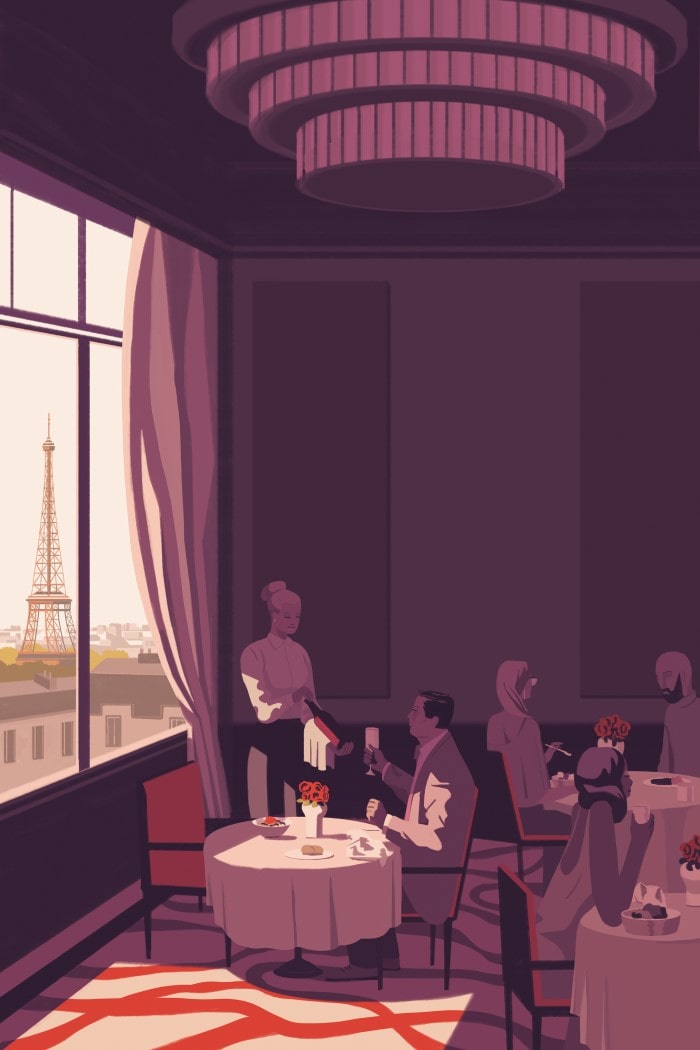
The cover image from My Place at the Table by Alexander Lobrano
Share to: Facebook Twitter LinkedIn Email
More in Food, French cuisine, interview, restaurants
Leave a reply
Your email address will not be published. Required fields are marked *

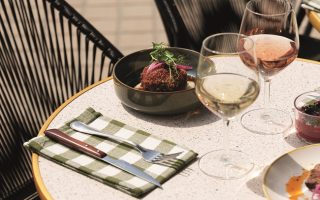


REPLY